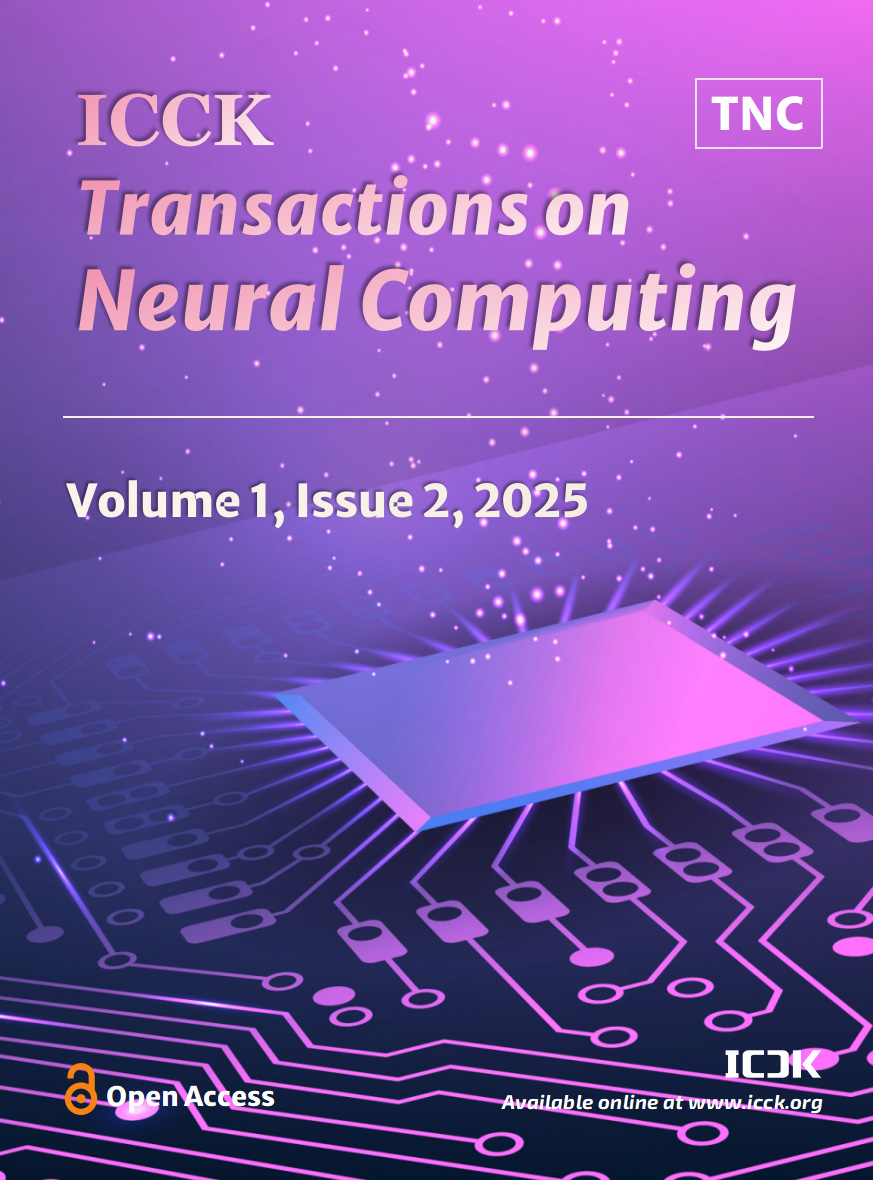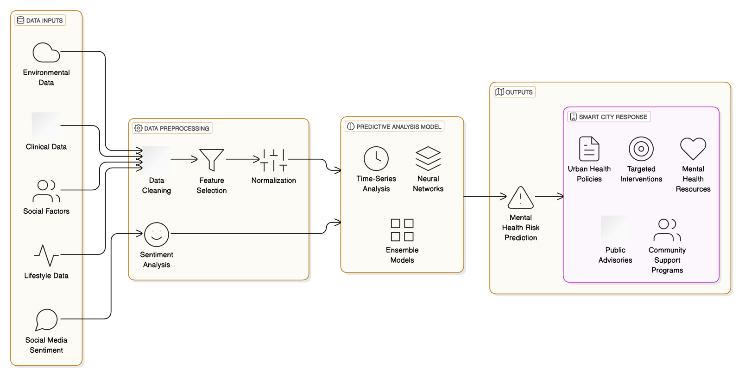Abstract
Mental health poses a growing concern in metropolitan areas where the speedy urbanization and societal demands are the chief causes of psychological discomfort. The context of intelligent cities, through their capabilities of advanced technologies and interconnecting networks, facilitates the approach of predictive analytic resolution of such issues. This paper is research regarding the implementation of machine learning in conjunction with Artificial Intelligence (AI) inter-operation for the prompt identification and management of mental health anomalies in smart cities. By using information from wearable gadgets, social networks, and the Internet of Things (IoT) based health monitoring systems, the proposed methodology tries to find trends and determinants of the mental health related applications. Federated learning models address data privacy and security requirements by enabling collaborative data analytics across organizations without exposing end-user identities. The results confirm that predictive analytics can boost mental wellness by means of individual approaches and precautionary measures. AI-supported initiatives are the possibility for acquiring mental health and sustaining the ability to get over the traumatic attacks of the smart city society.
Data Availability Statement
Data will be made available on request.
Funding
This work was supported without any funding.
Conflicts of Interest
The authors declare no conflicts of interest.
Ethical Approval and Consent to Participate
Not applicable.
Cite This Article
APA Style
Milon, M. H., Raja, M. R., Papel, M. S. I., & Hossain, Z. (2025). Predictive Neural Computing Framework for Assessing Mental Health Conditions within Intelligent and Data-Driven Smart City Ecosystems. ICCK Transactions on Neural Computing, 1(2), 98–107. https://doi.org/10.62762/TNC.2025.421125
Publisher's Note
ICCK stays neutral with regard to jurisdictional claims in published maps and institutional affiliations.
Rights and Permissions

Copyright © 2025 by the Author(s). Published by Institute of Central Computation and Knowledge. This article is an open access article distributed under the terms and conditions of the Creative Commons Attribution (CC BY) license (
https://creativecommons.org/licenses/by/4.0/), which permits use, sharing, adaptation, distribution and reproduction in any medium or format, as long as you give appropriate credit to the original author(s) and the source, provide a link to the Creative Commons licence, and indicate if changes were made.


 Submit Manuscript
Edit a Special Issue
Submit Manuscript
Edit a Special Issue

 Copyright © 2025 by the Author(s). Published by Institute of Central Computation and Knowledge. This article is an open access article distributed under the terms and conditions of the Creative Commons Attribution (CC BY) license (https://creativecommons.org/licenses/by/4.0/), which permits use, sharing, adaptation, distribution and reproduction in any medium or format, as long as you give appropriate credit to the original author(s) and the source, provide a link to the Creative Commons licence, and indicate if changes were made.
Copyright © 2025 by the Author(s). Published by Institute of Central Computation and Knowledge. This article is an open access article distributed under the terms and conditions of the Creative Commons Attribution (CC BY) license (https://creativecommons.org/licenses/by/4.0/), which permits use, sharing, adaptation, distribution and reproduction in any medium or format, as long as you give appropriate credit to the original author(s) and the source, provide a link to the Creative Commons licence, and indicate if changes were made. 